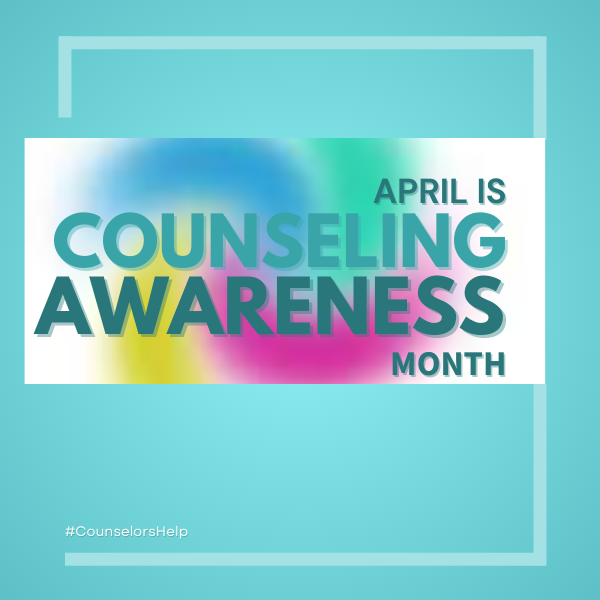If you’ve experienced something painful that continues to affect your daily life—whether it’s anxiety, intrusive memories, or a persistent sense of unease—you’re not alone. Many people carry the weight of unresolved trauma without realizing how deeply it’s impacting their thoughts, emotions, and body. Fortunately, there’s a therapy approach that’s changing lives: EMDR therapy.
At PCS Therapy, we specialize in trauma-informed care, and EMDR is one of our most effective and transformative tools. Whether you’re a first responder, healthcare professional, survivor of abuse, or someone struggling with anxiety or grief, EMDR can help you process the past so you can live more fully in the present.
What Is EMDR Therapy?
Eye Movement Desensitization and Reprocessing (EMDR) is a structured, evidence-based therapy designed to help people heal from trauma and distressing life experiences. Developed in the late 1980s, EMDR has been extensively researched and is now recognized as one of the most effective treatments for post-traumatic stress disorder (PTSD) and trauma-related symptoms.
The premise is simple: when something traumatic happens, your brain may not process the event in the usual way. Instead, the memory gets “stuck,” and every time something reminds you of that event, your mind and body react as if it’s happening all over again. EMDR helps you reprocess those experiences so they no longer feel overwhelming or emotionally charged.
How Does EMDR Work?
During EMDR sessions, your therapist guides you through a series of bilateral stimulations—most commonly side-to-side eye movements or tapping—while you briefly focus on a distressing memory. This process helps your brain “unstick” the memory and reprocess it in a more adaptive, less distressing way.
It’s similar to how the brain processes information during REM sleep, when our eyes naturally move side-to-side as we dream. The bilateral stimulation seems to help the brain do what it couldn’t do at the time of the trauma: digest and store the memory without triggering emotional overload.
Over time, the intensity of the memory fades. You’re still aware of what happened, but it no longer holds power over your emotions or reactions.
Who Can Benefit from EMDR Therapy?
EMDR isn’t just for people with PTSD. It’s also highly effective for anyone dealing with unresolved emotional pain or distressing life experiences. If you feel “stuck,” reactive, or triggered by memories or situations, EMDR may be a good fit.
EMDR is helpful for:
✔ First responders, military personnel, and healthcare workers exposed to trauma ✔ Survivors of childhood abuse, neglect, or complex relationships ✔ People recovering from car accidents, falls, or other physical injuries ✔ Victims of violence or domestic abuse ✔ Individuals dealing with complicated grief or loss ✔ Those struggling with shame, anxiety, panic attacks, or low self-worth ✔ People navigating birth trauma or perinatal anxiety ✔ Individuals experiencing ongoing emotional overwhelm or dissociation ✔ Anyone affected by generational or cultural trauma
You don’t need to have a single, specific traumatic event to benefit. Many people find relief through EMDR for accumulated stress, emotional wounds, or patterns of emotional pain that built up over time.
What to Expect During EMDR Therapy
EMDR therapy is typically structured in eight phases, which include:
- History-Taking & Treatment Planning – We learn about your history, current symptoms, and goals.
- Preparation – You’ll learn grounding techniques and coping skills to help regulate emotions.
- Assessment – You’ll identify a specific memory or issue to work on.
- Desensitization – This is where bilateral stimulation is used while you focus on the memory.
- Installation – We help you strengthen positive beliefs about yourself.
- Body Scan – You’ll check in with your body to release any lingering physical tension.
- Closure – Each session ends with grounding and a return to calm.
- Reevaluation – We check in to ensure the distress has decreased and identify any new targets for reprocessing.
Many clients report feeling relief, clarity, and emotional freedom after just a few sessions, while others benefit from longer-term work, especially for complex trauma.
Why Choose PCS Therapy for EMDR?
Not all EMDR therapy is the same. At PCS Therapy, our clinicians have specialized training beyond the basic EMDR protocol. We tailor the process to meet the unique needs of each individual—whether you’re recovering from childhood trauma, struggling with performance anxiety, or feeling stuck in grief.
Our approach includes:
✔ Trauma-informed, compassionate care that respects your pace ✔ EMDR tailored for first responders, healthcare professionals, and aviation workers ✔ Advanced protocols for clients with shame, dissociation, or chronic anxiety ✔ Integration with talk therapy and mindfulness for well-rounded support ✔ Telehealth options for convenient, confidential access
You deserve a safe space to heal—and we’re here to walk that journey with you.
Curious if EMDR is right for you? Schedule a free consultation with PCS Therapy today.
Frequently Asked Questions (FAQs)
Is EMDR like hypnosis?
No. EMDR is not hypnosis. You remain fully awake, aware, and in control throughout the process. Your therapist simply guides you through bilateral stimulation while you focus on your thoughts.
Will I have to talk in detail about my trauma?
Not necessarily. One of the benefits of EMDR is that you don’t have to relive or describe every detail of your trauma. You just need to hold the memory in your mind while the processing happens.
How many sessions does EMDR take?
It varies depending on the person and their needs. Some feel relief in as few as 3-6 sessions, while others benefit from longer treatment for complex or layered trauma.
Can EMDR help with anxiety or depression?
Yes. EMDR is often used to address anxiety, depression, panic attacks, and self-esteem issues, especially when those symptoms are rooted in past experiences.
Is EMDR therapy available virtually?
Yes. PCS Therapy offers telehealth EMDR sessions using secure platforms. Many clients find virtual EMDR just as effective as in-person therapy.
Is EMDR safe?
EMDR is considered very safe when conducted by a trained, licensed professional. It’s been endorsed by the APA, WHO, and VA as a frontline treatment for trauma.
Healing Is Possible
Trauma doesn’t have to define your life. Whether your pain is rooted in the past or still unfolding in the present, EMDR offers a path toward relief, resilience, and restoration.
At PCS Therapy, we’re honored to walk with you on your healing journey. If you’ve been feeling stuck, overwhelmed, or disconnected—you don’t have to stay there.
Let’s talk. Schedule a consultation to see if EMDR is right for you.
💙 Your healing starts here.
Need extra support?
Therapy can be a powerful tool in managing stress effectively.

Understanding Anxiety: Causes, Treatment, and How PCS Therapy Can Help
Feeling anxious from time to time is a normal part of life. But when anxiety becomes persistent, overwhelming, or begins interfering with your daily activities, relationships, or work, it’s time to take a closer look. Anxiety disorders are among the most common mental...

Counseling Awareness Month
Why Counseling Matters More Than Ever Every April, we celebrate Counseling Awareness Month (CAM)—a time to recognize the profound impact of professional counselors and the essential role counseling plays in supporting mental health and well-being across our...

Managing Stress: Effective Strategies for a Healthier Mind and Body
Stress is an inevitable part of life. Whether it stems from work, relationships, or unexpected challenges, everyone experiences stress at some point. While stress can sometimes be a motivator, chronic stress can negatively impact your mental, emotional, and physical...

Aviation Mental Health in 2025
Understanding the Changes and How PCS Therapy Supports You A New Era for Aviation Mental HealthMental health in aviation has long been a complex topic, with many pilots and air traffic controllers hesitating to seek help due to concerns about career consequences and...
Stay Connected & Prioritize Your Mental Well-Being
At PCS Therapy, we are committed to providing expert mental health support and trusted resources to help you navigate stress, trauma, and personal growth.
Need Personalized Support? Contact us today to schedule a confidential consultation.

